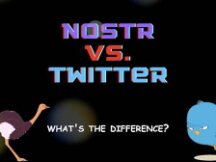Musk is right. Web3 sucks!

Depression: The person you fight for will have a positive effect.
Anyway, I'm not a big fan of Elon. He was an ignorant, narcissistic, reckless and indulgent clown who wasted his people and had business skills that helped him become a billionaire despite the unprofitable businesses he ran.
However, Musk recently tweeted that "Web3 sounds like bs" which I totally agree with.
Web3 shows that the concept, although recognized by Bloomberg, is a bit ambiguous, and that the World Wide Web can be implemented using blockchain. Proponents of this idea like to talk about the importance of Web 2.0 and its management by big business, and how blockchain, encryption, and NFTs can help “keep people recovering.”
This all sounds fantastic and looks great in theory, but in practice it just isn't true.
medium internet
Web3 is bullshit on many levels, but most importantly it affects politics and power relations with technology issues. According to Web3 fans, blockchain is a technology that can finally bring a website back to its core. The truth is that not only is blockchain useless to accomplish this, but we already have the technology to do it.
ActivityPub is a process that has been around for many years and has inspired the formation of relationships with government-affiliated organizations such as Mastodon. Each community can create and manage its own instance of ActivityPub. Even a user can create their own event server and combine them with other events as needed. It's a beautiful house where people can control who enters what venue and where it is presented.
So why don't we see people coming from Twitter and Facebook to Mastodon or similar platforms? You've got the skills, you've got the platform, just sign up and convert.
The reason for this is that platforms like Twitter are gaining momentum and impact and have a huge user base which is exactly where most of the people they follow. There are plenty of stories of people who switched to Mastodon, but they'll be back on Twitter soon. Because it's a "platform with everything". Companies like Twitter are spending millions of dollars on "consumer insurance", and big companies are improving their online presence and providing better users for using Twitter.
Big media monopolies have benefited from a wide range of capital investment through the use of other companies that can streamline their advertising and marketing campaigns and big company mergers are the result of the body in which we live.
The Web3 philosophy is based on the negative belief that technology and "smart ideas" can solve most of our community's problems. Its injustice also extends to the idea that free trade is, in fact, a solution to the crime of monopoly, not a system that actively develops and expands monopolies. .
There is no legitimate solution to this problem, and not by bad technology. We already have the tools to create a decentralized web, and blockchain isn't even a technology.
Blockchain, NFT and crypto bullshit
A blockchain is a form of digital data made up of data called blocks. This information is self-managed via the peer-to-peer network. In other words, no centralized system manages the entire infrastructure. Instead, everything is controlled by all nodes connected to the network.
The main purpose and only reason blockchain is useful is to write businesses. Of course, this is a very clever way to avoid the double-spend problem when a digital token is used twice (or more), i.e. sent to multiple places at once. This is why so far the only major applications of blockchain are digital assets and non-conforming assets (NFTs).
Some have suggested that NFTs can be used to collect things like functions and memberships, but even accounting for oracles, blockchains can be used for physical or on-chain verifications, authorizations, assertions or proofs. Blockchain only makes sense in the digital world, and only for exchanging data. Until now, no one had thought to trust dapp (decision making application) which is not related to cryptocurrency in any way.
This is why you can see that some Web3 advertisers are lying when they talk about the importance of media and the usefulness of blockchain.
Social media posts do not constitute an exchange of information. You can have likes to post your ads, but the double spend problem is not a problem because you have unlimited likes. We have years-old technology like PGP that can prove the reality of advertising. We already have decentralized peer-to-peer technology that resists censorship and allows decentralized data storage (like WebTorrent used by PeerTube).
Unstoppable domains are good in theory, but are a solution to the benefits and don't flow from the distribution in practice. You will also need to purchase a domain name from UD. Plus, bypassing DNS blocking is easy. As a DNS provider, Unstoppable domains will not solve IPS hard IP blocking issues.
Projects like the Interplanetary File System (IPFS) are growing and being used to fight censorship. However, the standard cost is a bit uncertain, and the cost of "feet" (removed) is often more expensive than traditional solutions. If you use a company like Pinata to hold (“PIN”) your content and pay a monthly fee when activating your content, you have to ask yourself to always trust your hosting company and the independence of the rules caching. Moreover, we already have platforms like Magnet Link, Tor Dos service, FreeNet, which are now almost 22 years old (the network itself is only 9 years old).
The technology is already there and we have been using similar tools for many years. What needs to be done against the platform is nothing new. It is not uncommon for a new machine to fix this problem.
Behaviorism Bullshit de VC
Venture capitalists have gained notoriety and can pose as attackers trying to "distract the middle class" and create "an Internet presence owned by developers, users and developers". They can claim to be the voice of a generation of rebels who want to fight the “big guys”. However, the only reason VCs invest in Web3 operations is to make money, not to break the news.
Many Web3 projects simply write "decentralized", and while many use a permissioned (or hybrid) blockchain that only allows companies to add or remove tokens, token owners can trade on their own. As some authors have pointed out, centralization is a given. And true decentralization cannot be achieved without equity and only through the distribution of power. This is not possible with cryptocurrency and Web3. What you get is a “market” of power, and we can see how it manifests by looking at Bitcoin's financial system (all unexpected).
As mentioned above, the technology provided by the Web3 team is nothing new. The main difference here is that all of this work revolves around DeFi and cryptocurrencies. That's why VCs love Web3. They want to delay the cryptocurrency bubble. They want to increase the investment plan and increase the value of the assets associated with it. They need more money to enter the market so that more people buy cryptocurrencies and increase their value. They don't care about "decentralization", "freedom" or "censorship". They just want to make more money before the bubble finally bursts.
Blockchain-based blog and social media site Steemit is set to lay off 70% of its staff when cryptocurrency prices fall when the market falls in 2018. These platforms' market strategy is only created by crypto -currencies and proprietary tokens and their circulation.
The driving force behind this theory is a universal technocratic theory that, in the shadow of Fukuyama's "end of history", sees the world not as an argument between many different forces, but simply "where it needs to be changed from better ideas". “Brilliant new technology developed by smart people will make a real difference.
But, as I said before, the problem is political, not technological. If you want to defend the power wielded by big media companies, you have to go against what Web3 content developers are trying to do. Examine the economic benefits of the business and seek appropriate policies. Arguably, the only way to solve the problems of big social media companies is to bring business and profit from the whole equation.
In the context of cryptocurrencies, we need to consider how some form of decentralization can provide investors with a variety of abuses and money laundering, dishwashing, and business practices. Finally, if you look at the service of the onion, you can see that it is mostly used on the black market.
A radical task is to bring more independence to our financial management system and to decide to eliminate cash in the future. Bitcoin is not radical. Bitcoin is returning to a more liberal market, empowering investors. I always laugh when people laugh that cryptocurrencies attack all forces and big banks have invested hundreds of millions of dollars and benefited from cryptocurrencies. Ideally, cryptocurrencies can make them uncomfortable, but that's not a threat.
Similarly, supported by venture capitalists, Web3 will not face much energy. I think it's a passing fad, but even if it happens, the energy just flows from the tech to the VC, not the humans. Don't be fooled by their business plans. All of this is false.

Scan QR code with WeChat































